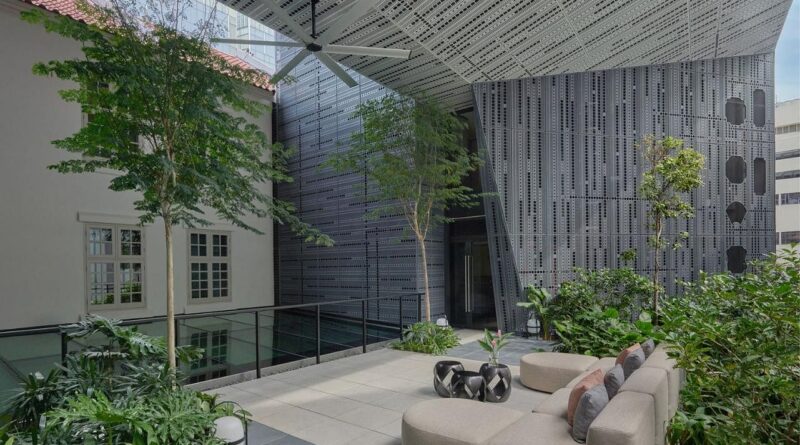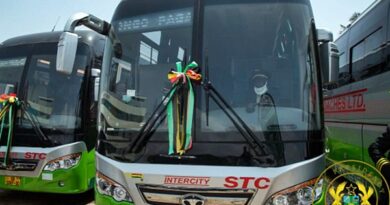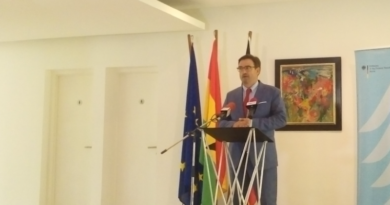From green mobility to heritage preservation: How these S’pore firms build sustainability into the core of their business
When heritage hotel 21 Carpenter opened last month, many industry experts noted how its location—between historic Chinatown and vibrant Clarke Quay—perfectly embodied the “past-present-future” ethos of its developer, 8M Real Estate (8M). The property firm is known for rejuvenating conservation buildings and has played a big part in revitalising areas like Amoy Street and Keong Saik Road.
“The hotel, designed by Woha Architects, preserves the heritage building and retells the story of the building’s origin as a remittance house while being equipped with all the modern systems and spaces to cater to modern travellers,” says Moon Sun Mi, director of development for 8M.
“We conserve our shophouses while striving to elevate their use to meet modern needs in a sustainable way. It’s all about being respectful while being forward-looking.”
With its emphasis on adaptive property reuse, 8M, along with Swedish-Swiss multinational ABB Group (ABB), are companies at the forefront of developing and commercialising sustainable solutions in Singapore.
Both companies are part of the National Volunteer and Philanthropy Centre’s (NVPC) Company of Good Community, which supports businesses as they adopt corporate purposes and create impact in the people, society, governance, environment, and economic dimensions.
To encourage and celebrate progress in these areas, NVPC recognises businesses in Singapore at a national level under its newly launched Company of Good Recognition System.
A big player in the electrification and automation field, ABB powered the world’s first autonomous electric bus in Singapore in 2019 and is committed to a resource-efficient future. “We tackle global energy challenges,” says Jerrica Chooi, country holding officer at ABB Singapore.
“Our innovations enhance the energy efficiency and safety of homes, offices, factories, and transportation. We help to create a more prosperous and sustainable future by transforming industries.”
Change starts from the core
One of the reasons why ABB and 8M have been so successful in pushing the envelope in this area is by building sustainability into their core purpose.
ABB has been revolutionising the transportation industry by making clean mobility a reality, not just on the roads but also on the high seas. Aside from its pioneering work on autonomous electric buses, it has also continued to push for widespread electric vehicle adoption by expanding EV charging networks and installing chargers through industry partners at easily accessible sites like Shell petrol stations, HDB carparks, schools, shopping malls, and commercial buildings.
ABB has also launched hybrid tugs and hydrogen-fueled container vessels, demonstrating the possibilities for powering ships with clean and renewable energy. The firm is also collaborating with Zume, a California-based company, to create compostable packaging on a scale large enough to replace plastic.
Known for its focus on the re-adaptation of existing real estate, 8M has established a reputation for an energy-saving ethos that avoids the typical process of demolishing and rebuilding structures. However, this also means that projects are not straightforward.
“We work with conservation specialists who advise us on the best practices of heritage preservation,” says Moon. “To make each property fit for modern use sometimes requires just interior work or new acoustic windows; other times, it might require a complete overhaul of the layout.”
Besides focusing on retaining the building’s original structure, the real estate firm also works hard to ensure that its buildings’ maintenance is environmentally friendly. This is achieved through the installation of motion sensor technology for air conditioning and lighting in its properties, as well as investing in a portfolio-level energy monitoring strategy. It already has the development of one Green Mark-certified building under its belt, with another two in the pipeline this year.
Impacting people and the < community
These two companies ensure that sustainability is a way of life, not just for their customers and end users but also for their employees, partners, and the wider community.
“We want to walk the talk through our initiatives, where we adopt sustainable, green practices at all levels,” says ABB’s Chooi. To this end, the company installed solar panels on its office buildings, cut out plastic packaging entirely, and is on target to convert its entire service van fleet to EVs this year in Singapore.
It also ensures that its employees enjoy environmental initiatives like the distribution of reusable lunch boxes, learning opportunities like information on adopting green habits through internal channels and educational trips to the Semakau Island landfill, and a comprehensive recycling programme.
“For us at ABB, sustainability is both the right thing to do and a business opportunity,” says Chooi, highlighting the economic sustainability aspect: ABB’s solar panels now mean the company is selling back to the grid.
She adds: “Implementing sustainable practices in engineering processes, such as energy-efficient designs and waste reduction measures, not only aligns with environmental goals but also enhances operational efficiency. This leads to cost savings, making the company more competitive on a global scale.”
Within the wider society, ABB has partnered with tertiary institutions like the Institute of Technical Education to offer continuing education and training courses in STEM disciplines while also participating in community initiatives like a closed-loop garden in Bukit Batok. It also recently opened the Digital Solutions and Training Center to demonstrate how digital solutions can transform businesses.
“Being sustainable is about more than being energy-efficient,” agrees Moon. “It also means being socially conscious and financially responsible.” As such, 8M is cutting down on paper usage and plastic consumption while ensuring that its own office space has achieved eco-certification.
It also encourages its tenant partners to take up green leases, providing spaces and tools to maximise sustainable operations while providing its employees with development opportunities and outreach opportunities that are in line with its eco-conscious philosophy.
“Our integration of architectural conservation and preservation plays an important role in place-making,” notes Moon. “By revitalising these iconic properties, we create unique and distinctive spaces that serve as focal points for community identity, contributing to a sense of place and belonging.”
Both of these companies demonstrate how innovating can multiply impact for a sustainable future. As more companies join the movement, it will create shared value for businesses, people, and the planet alike.
Source :businesstimes.com.sg




